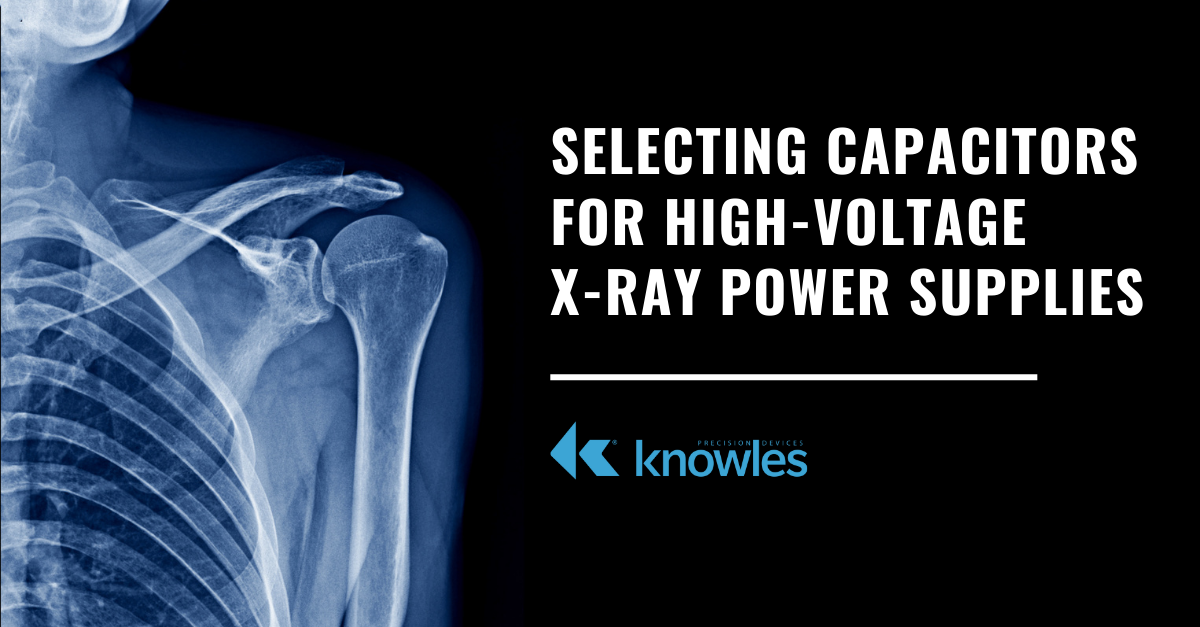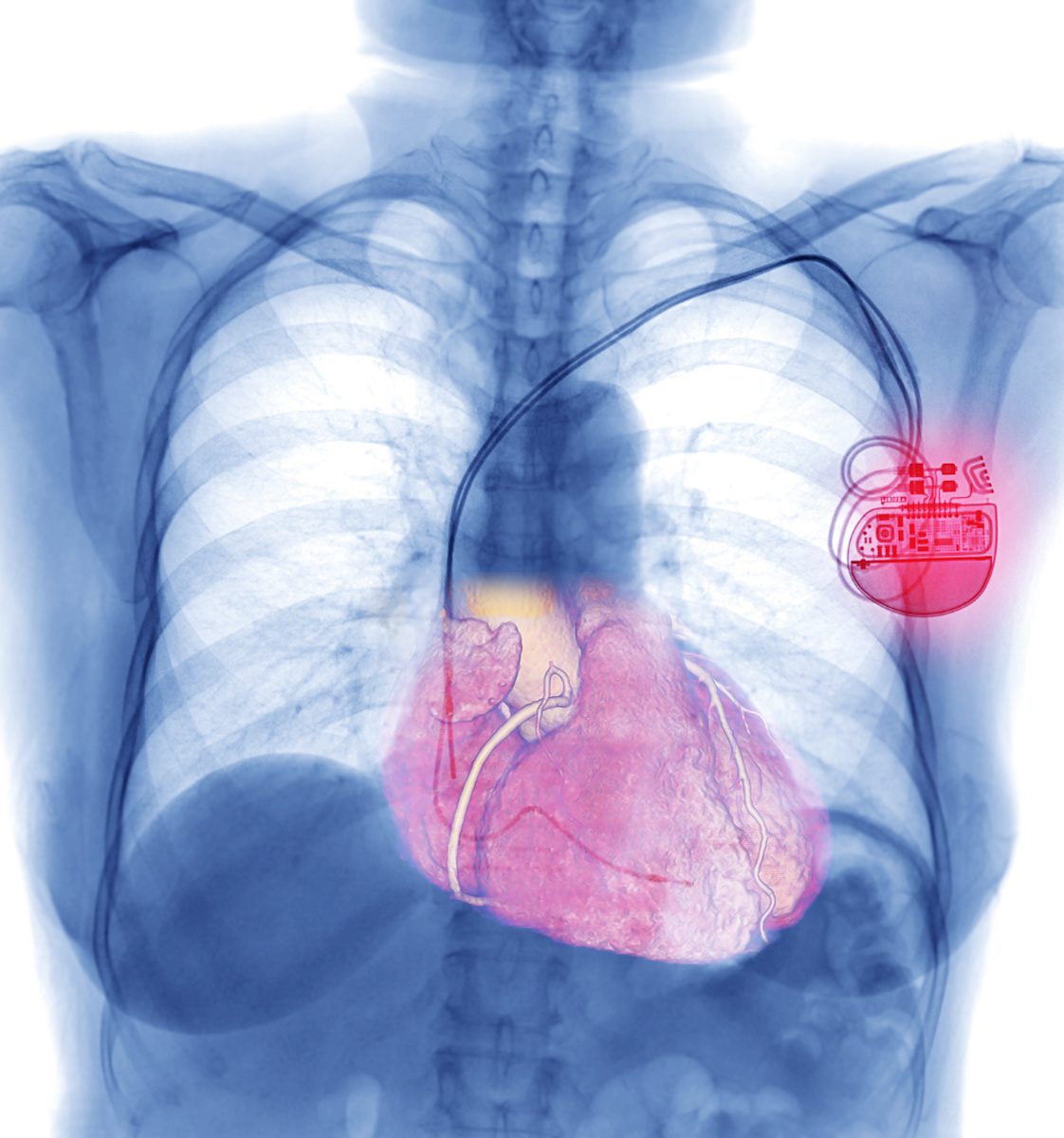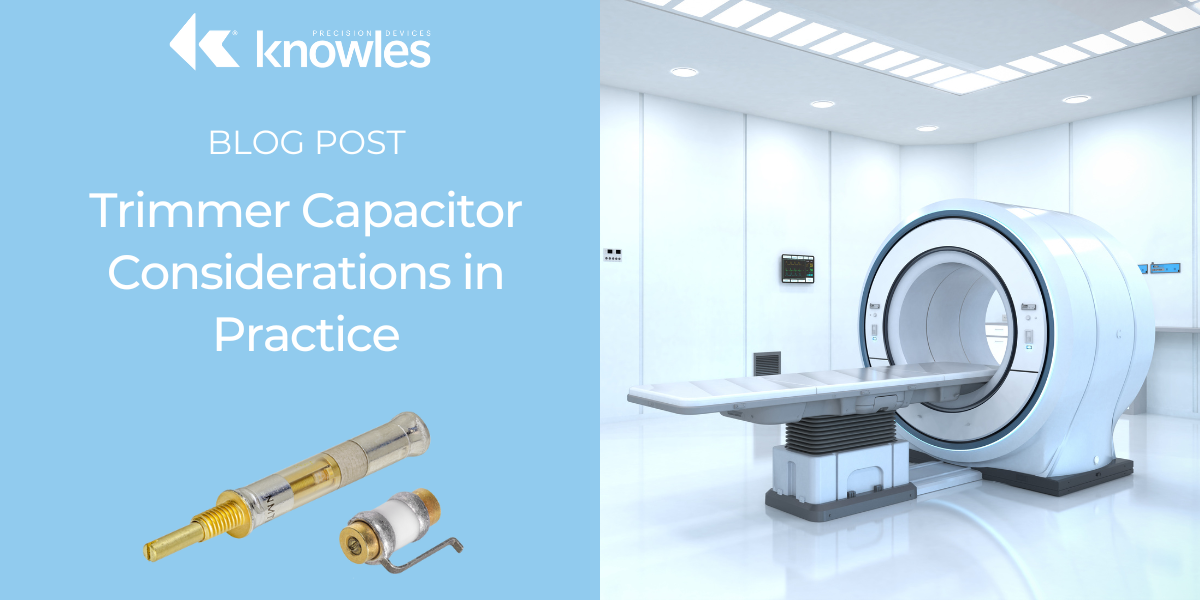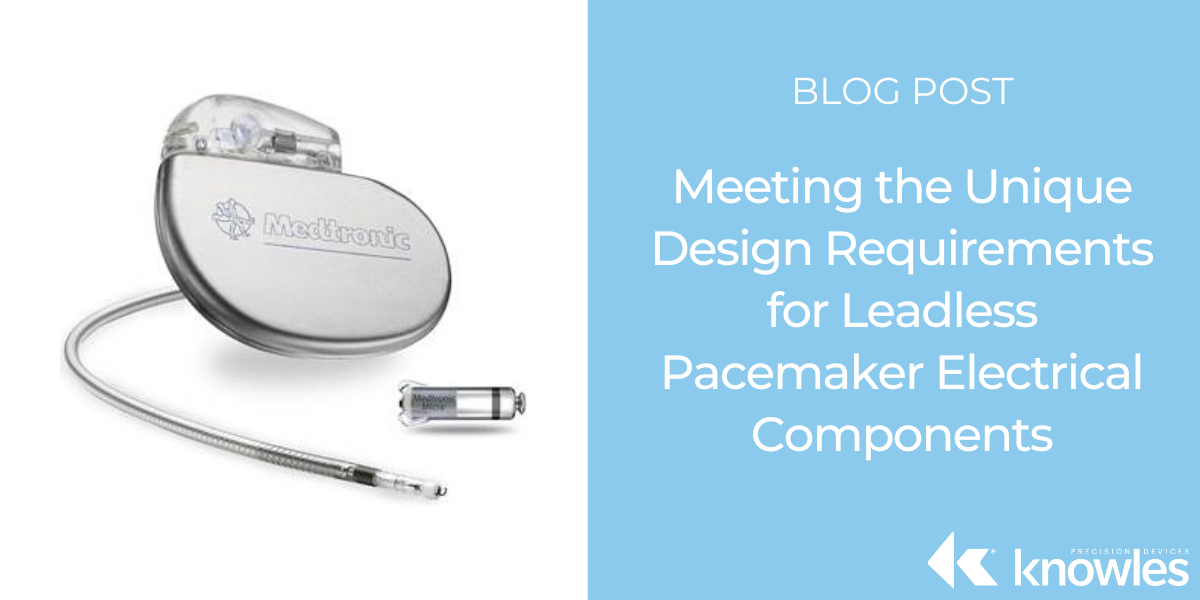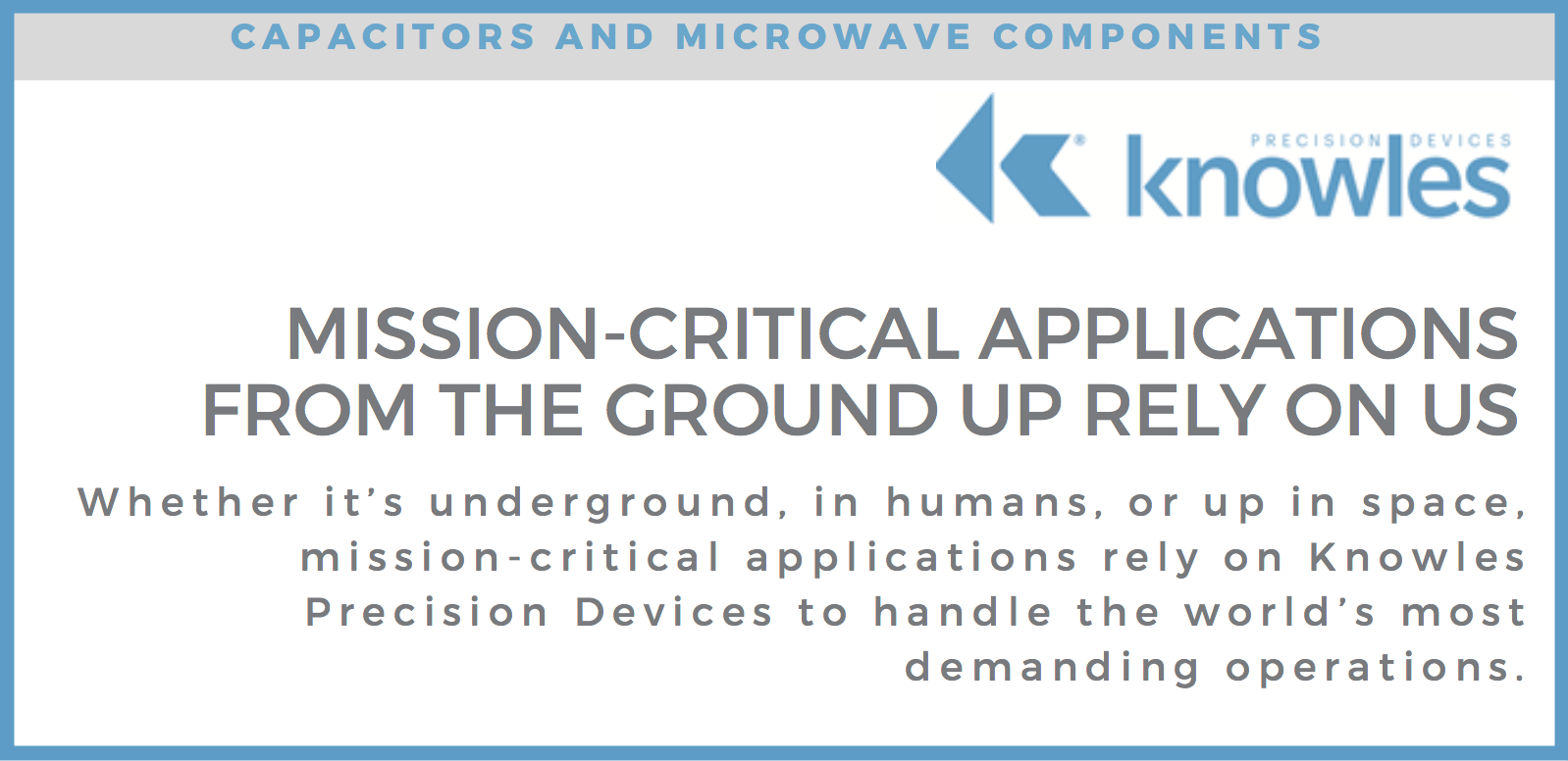MRI systems are so robust and require so much infrastructure that they need their own dedicated room—until recently.
A portable magnetic resonance imaging (MRI) system, or point of care (POC) MRI machine, is a compact, traveling device that’s designed for patient imaging outside of the traditional MRI suite (e.g., emergency rooms, ambulances, rural clinics, field hospitals, etc.)
Read More
Topics:
Capacitor,
Medical
A medical device is considered “implantable” if it’s partly or totally introduced into the human body via surgery or another medical intervention, and it’s intended to stay there for a long period of time. According to the American Medical Association (AMA), approximately 10 percent of Americans will receive an implantable device during their lifetimes. To serve consistent, often life-sustaining functions, implantables require high-reliability components that guarantee long-term performance.
Read More
Topics:
Medical,
High Reliability
A deep brain stimulator (DBS), also known as a neuro-stimulator, is a medical device that uses electrical stimulation to treat neurological disorders such as Parkinson's disease, essential tremor, dystonia, and obsessive-compulsive disorder (OCD). The DBS is typically implanted under the skin near the collarbone or in the abdomen, and connected to a thin wire, or lead, that runs under the skin to the targeted area of the brain as shown in Figure 1.
Read More
Topics:
Capacitor,
Medical
As the backbone of the X-ray machine, X-ray tubes produce the radiation that generates the electromagnetic waves known as the “X-ray.” This is done by using a high voltage to accelerate the electrons released by a hot cathode to a high velocity. Those electrons then collide with the anode, which is a metal target usually made of tungsten. This process requires an input voltage typically ranging from 180 to 480 VAC with a power supply that transforms and steps up the voltage to extremely high voltage outputs ranging from 10kV and 120kV DC. A high-level diagram of the power supply required to power the X-ray tubes is shown in Figure 1.
Read More
Topics:
Capacitor,
Medical,
Filtering
At Knowles Precision Devices (KPD), we handle the specialty components that go in the systems that can’t quit. We have the extensive resources and subject matter knowledge to innovate around the technical and environmental challenges facing high-impact industries including military, aerospace, and beyond.
Read More
Topics:
Capacitor,
News and Events,
Medical,
High Reliability
Designing medical implantable devices for high reliability is crucial for a variety of reasons. First, given the life-critical functions performed by many medial implantable devices, and the invasive procedure required to implant medical equipment properly in the human body, it is imperative that all medical devices are designed to function reliably throughout their entire lifetime. Furthermore, since patient safety is paramount, any precautions to reduce the possibility of potentially life-threatening malfunctions, recalls, and replacement surgeries are necessary. And, beyond preventing patient safety issues, there may also be severe economic and legal implications for device manufacturers if an implantable device fails.
Read More
Topics:
Capacitor,
Medical,
High Reliability
Trimmer capacitors are variable components used to calibrate RF circuits during manufacturing or servicing. These components allow for variable tuning--think oscillator frequency values or rise and fall times. Should values drift over the life of the device, trimmer capacitors can be recalibrated as needed. For sensitive applications like magnetic resonance imaging (MRI), these components help to optimize performance where any instability in time or temperature could impact the image output.
Read More
Topics:
Capacitor,
Medical
Today, millions of people around the world rely on pacemakers to help regulate their heart’s rhythm. A traditional pacemaker usually consists of a pulse generator that is about the size of a tea bag and implanted under the skin near the collarbone, and a wire, or lead, that runs through a blood vessel to the heart. The end of the lead has an electrode on it that touches the heart wall to deliver electrical impulses. However, in the last decade, innovations in pacemaker technology have led to the introduction of a new style of pacemaker, known as the leadless pacemaker, that is about 1/10th the size of a traditional pacemaker, or about the size of a vitamin (Figure 1).
Read More
Topics:
Capacitor,
Medical,
High Reliability
Innovating essential high technology systems with demanding specifications is always challenging; making any sort of difference requires extensive resources and deep subject matter knowledge.
But that’s what keeps it interesting.
Read More
Topics:
5G,
Capacitor,
News and Events,
RF and Microwave,
Automotive,
Military and Aerospace,
Medical
Healthcare professionals and patients rely on magnetic resonance imaging (MRI) technology to examine soft tissues and organs in the body to detect a variety of issues, from degenerative diseases to tumors, in a non-invasive manner. To do this, the MRI machine uses a strong magnetic field and computer-generated radio waves to produce cross-sectional images. Thus, the quality of the MRI depends on the uniformity of the magnetic field – even the smallest trace of magnetism inside an MRI scanner can disrupt the field and degrade the quality of an MRI image.
Read More
Topics:
Capacitor,
Medical

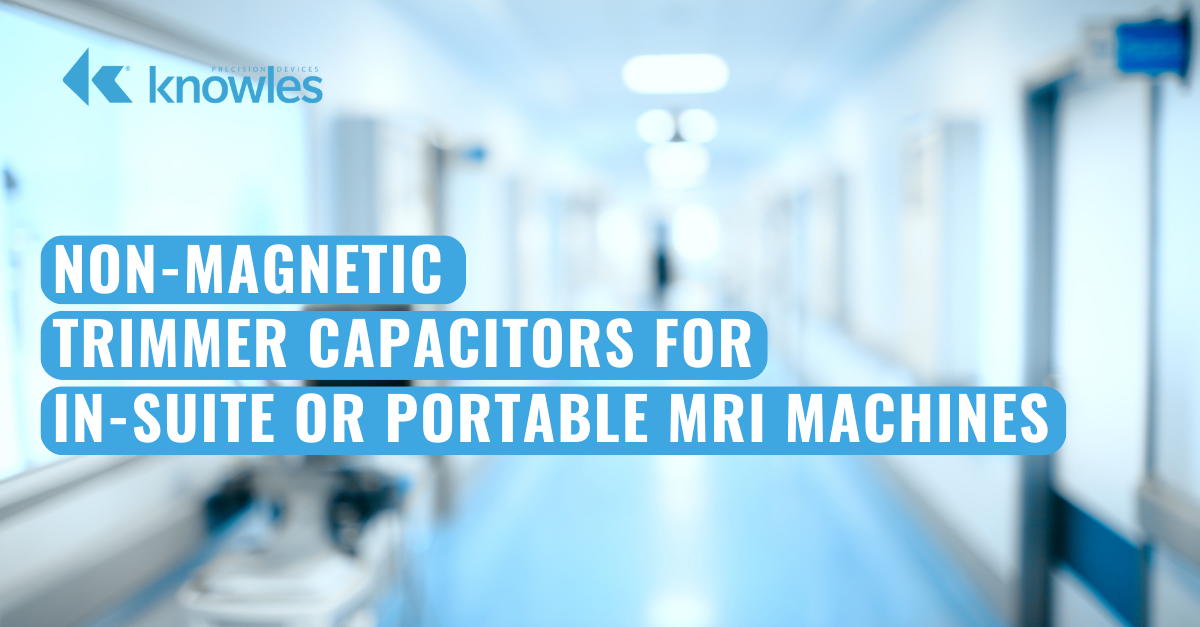
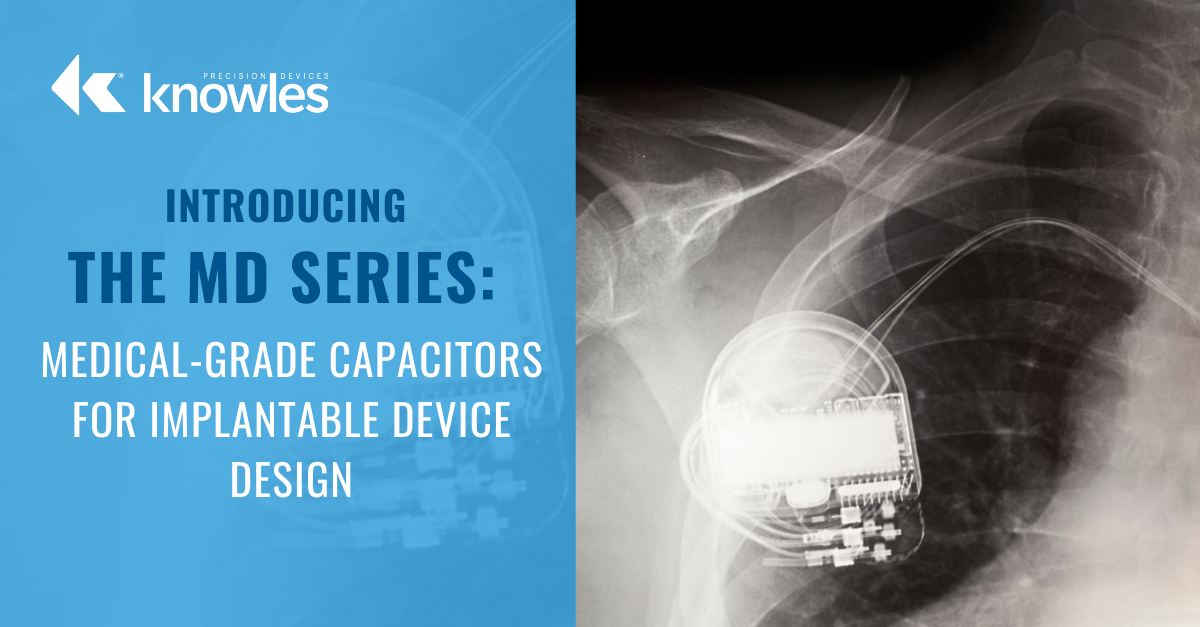
.png)
